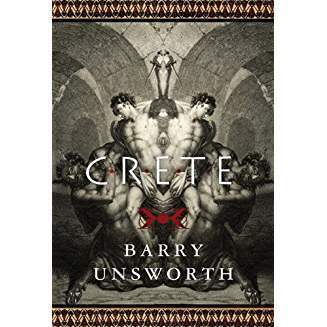
Crete
By Barry Unsworth. National Geographic, 2004, 170 pp.
Even for the Greeks of old, “Crete was the most venerable and ancient place imaginable,” says the novelist Barry Unsworth in his chronicle of a trip he took to the island with his wife one spring. According to myth, Crete was the birthplace of Zeus, and it was where Zeus later carried Europa, daughter of a Phoenician king, having seduced her in the shape of a bull. “Crete then, not only gave Europe its name, it was where Europe began,” he says, “a truth Cretans have always known.”
Writing with imagery that is evocative but not flamboyant, Unsworth conveys the antiquity—as well as the spirit—of this rugged island which abounds in caves, gorges, and magnificent views of the sea. Visiting ruins, he recounts both the colorful old myths and the history of a country that suffered for centuries at the hands of a succession of invaders—Byzantine, Venetian, Turkish—before uniting with Greece in 1913.
A great admirer of the Minoan civilization that preceded the Greeks, Unsworth describes the fascinating excavation of Knossos by Arthur Evans at the end of the 19th century and the extraordinary quality of the artwork that remains. He is especially awed by the Festos Disk, dating from around 1700 BC, with its elaborate ideographs—“241 signs in all, among them running figures, heads crowned with feathers, ships, shields, birds and beasts and insects”—the script still undeciphered. “And all of this several thousand years before Gutenberg!”
Crete is not a travel narrative. Indeed, apart from a few remarks, including some interesting comments the author makes about writing and his novels, there is little of a personal story here at all. Nevertheless, this compact book feels personal: it is one informed individual’s guide to a place he loves. He shares his exploration of the areas he found most interesting, warns against the heavily touristic areas he loathed, identifies and quotes from the books about Crete he found most useful. While I was drawn to Crete because I’ve so enjoyed Unsworth’s novels—and knew the writing would be as excellent as it was—all of this makes the book practical as well as a pleasure to read.